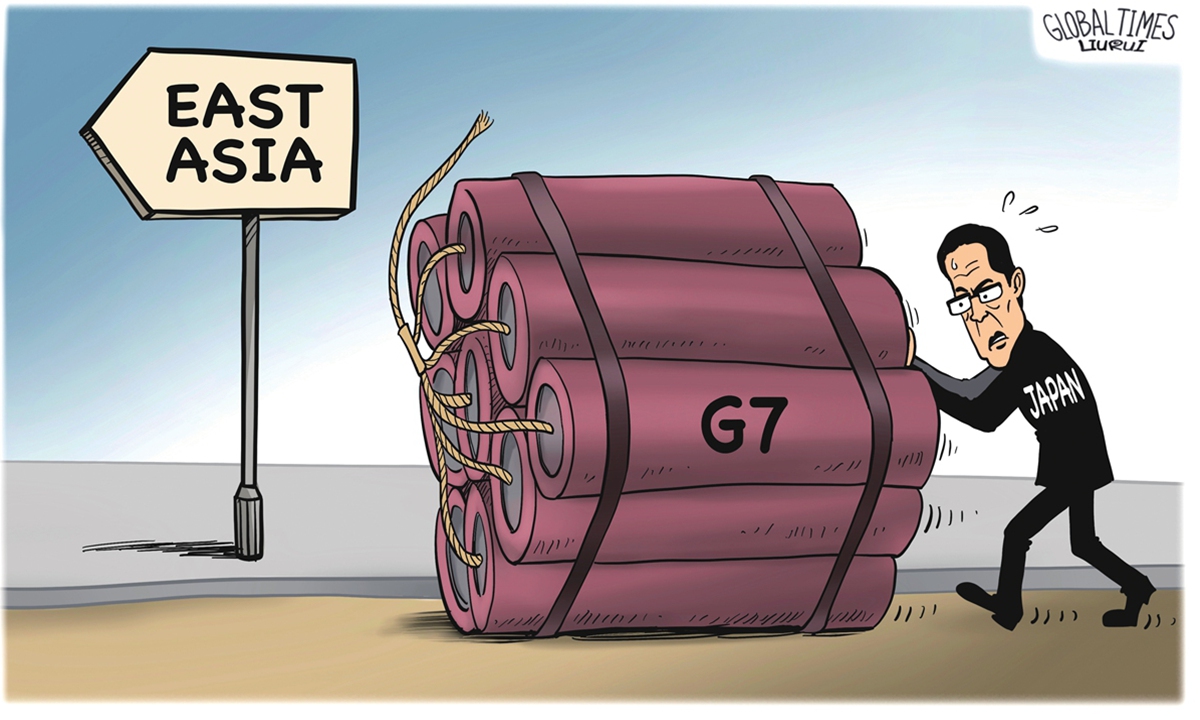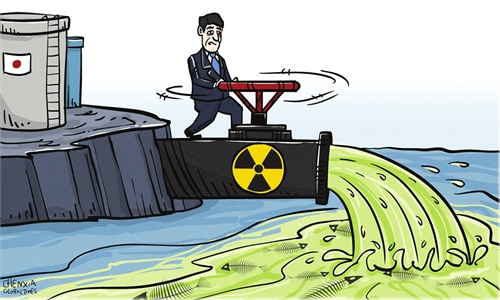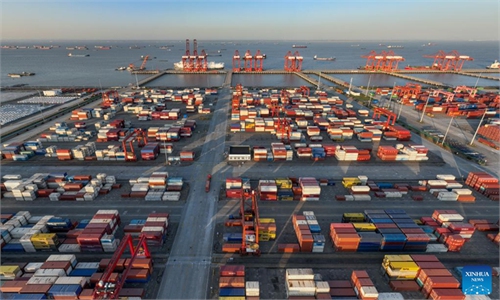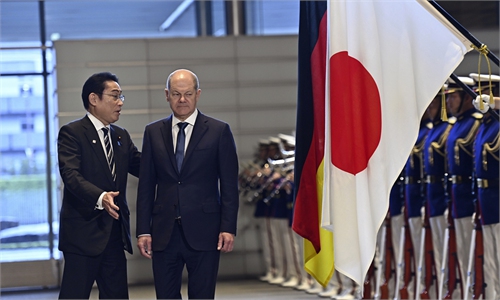
Illustration: Liu Rui/GT
Japanese Prime Minister Fumio Kishida has just received South Korean President Yoon Suk-yeol and German Chancellor Olaf Scholz in Tokyo. On March 19, he rushed to New Delhi to reportedly invite Indian Prime Minister Narendra Modi to the Group of Seven (G7) summit to be held in Hiroshima in May. Japan's active diplomacy is noteworthy, and if it is really promoting regional peace and stability, it is a good thing. However, Japan's intensive efforts in a specific direction have aroused suspicions and vigilance, and have seriously damaged regional mutual trust and peaceful atmosphere.
Whether facing South Korea in East Asia, or Germany, which is far away in Europe, or Australia, India and other countries, Japan has focused on promoting the same rhetoric. From Tokyo's perspective, it has portrayed the security environment in East Asia, laid the groundwork for its military relaxation in international public opinion, pushed for defense cooperation with these countries, and tried to introduce and use external forces to target China. These remarks and actions are no longer concealed, and they are all catalysts for the "new cold war" in the Asia-Pacific. While acting as the East Asia "sub-ruler" of Washington's "headquarters," Japan is also pursuing its own sinister agenda. We firmly oppose this kind of Japanese diplomacy.
In recent years, Japan has appeared very eager to pursue the so-called "normalization of the country," but in fact, it is pushing Japan step by step toward "abnormalization." Is it normal to promote political and security confrontation with its largest trading partner? Is it normal to spend so much money buying expensive offensive missiles from the US while its economy and living standards stagnate? Is it normal to rely on Washington's geopolitical strategy despite being in East Asia? Nowadays, there are too many abnormal aspects of Japan, and the degree of abnormality is increasing, which are causing concerns.
If nothing else, in the budget that will automatically come into effect at the end of this month, Japan's defense budget will increase by 20 percent year-on-year to a record-breaking $50 billion. This includes a special budget of approximately $1.55 billion for the procurement and deployment of US-made long-range Tomahawk cruise missiles. At the same time, the Kishida government announced that Japan's defense spending will double in the next five years. Can a Japan with a defense policy that has shifted "from defense to offense" still call itself a "peaceful country"? Some Japanese scholars have pointed out incisively that Japan has become "more aggressive."
As an excuse for its military expansion, Japan claims it is faced with the "most severe and complex security environment since the end of World War II." However, it must be pointed out that at least a considerable part of such "severity and complexity" is caused by Japan itself. Its current actions and sustained wrong path are not the behaviors of a country in peace, which greatly endanger regional security and, in the end, will inevitably backfire. In the vicious cycle of security in East Asia, Japan has played a terrible role.
It is understandable that Japan is eager to become a major political power, but the path to this goal is definitely not military aggression. Particularly, for a country like Japan that has committed war crimes and has the pacifist constitution, one should be more vigilant. If Japan attempts to incubate its military power with the Japan-US alliance, then what hatches out someday could be a terrifying political monster, rather than a great power. The US should also be well aware of this.
The G7 summit in Hiroshima will be held in May, but it has already smelled up. Japan attaches great importance to the opportunity to assume the G7 presidency and has carried out a batch of shuttle diplomacy, which adds to the flavor of this G7 summit. As the only Asian member, Japan not only fails to speak for Asia, but also serves as a bridgehead for external interference in Asian affairs. This also proves the abnormality of Japan's diplomacy.



